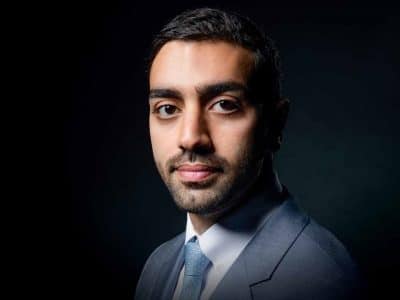Akram Khattab, head of Private Banking at UAE-based Mashreq tells CEO Middle East how the bank zeroes in on the region’s high net worth individuals.Will you make your customers rich and wealthy?
No. They need to be already fairly wealthy to become our customers. We make sure they stay wealthy and do not lose their hard-earned money in risky financial transactions or unmonitored portfolios. We do wealth preservation.
What exactly then can the private banking customer expect from his private bank?
They should expect safety, confidentiality, convenience and the ability to customise.
True private banking services are available only to a few privileged customers and at a fairly high cost. However the benefits by far outweigh the cost as so often when you buy expensive but highest quality products.
In return of the higher fees a private banking customer pays he can expect most competent and genuine advice from a team of senior and very experienced bankers with respect to all his financial arrangements surrounding his and his family’s private wealth. This advice holistically covers the areas of financial planning, portfolio composition and – monitoring, appropriate legal structures and account infrastructure and the wealth transition process to the next generation.
At the heart of the value proposition of a genuine private bank lies safety, confidentiality, convenience and the ability to customise. This may sound simple, but to deliver this you need highly competent and creative bankers who have at their disposal an infrastructure that ensures excellence in execution of all transactions. There is no room for trial and error. Everything needs to be done right the first time.
At Mashreq for example, Private Banking is part of the Corporate and Investment Banking Group. This ensures that corporate and investment banking service levels are given to our private banking customers.
Another important issue is an alignment of interest between the client and the banker. At our bank we do not look at our bankers as part of a sales team. They are on the ‘buyer’ side – for the customer. Our bankers have mainly asset targets and will not give short term revenue generation a higher priority than they give to the benefit of the client. They will work hard so that the customer is satisfied and will add funds such that the value of the portfolio increases.
They have no incentive to sell a high revenue generating product to the customer, if a good old-fashioned bond with lower revenue to the bank is better for the client.
At Mashreq Private Banking the banker’s interest is aligned to the client’s interest. Revenue generation to the bank is fine, but not at the expense of the client’s benefit. This is most important.
You mentioned that it is the advice the customer pay for. Could you explain in more detail what this advice exactly represents?
Advice is much more then a recommendation or a suggestion. Delivering advice is a clearly defined and structured perpetual process which requires sophistication, precision and deep knowledge of the profession of wealth management. Only very experienced bankers can deliver true advice which works and brings results. The advisory process is best described with the so-called wealth management cycle, which is a sequence of five steps. Once step five is accomplished we restart with step 1 to make it a cycle.
Step one would be to get a very clear understanding of the overall financial objective of the client. For this, detailed discussions need to take place to get clarity about the current situation and objectives. In the medical profession there is a saying that prescription without diagnostics is malpractice (even if by luck the prescription was right).
Step one, the so-called profiling is the diagnostics part. If this is not done properly everything which follows will not bring the desired result. In the excitement of getting new business lots of not so experienced bankers jump over this crucial step in order to get straight into financial transactions. Further, the client does not always make proper diagnostics easy. It takes time until trust is developed and the client opens up to share all the necessary information with the banker.
Step two would be the development of a strategy to reach these objectives. Typically this would lead to formulate an investment policy that sets out the rules and guidelines of the structure of a portfolio. It would suggest a certain asset allocation, concentration limits within each asset class, stop loss, profit taking and hedging guidelines. Most importantly, certain limits on leverage, risk and volatility levels would be put in place. Such an investment policy would typically recommend certain legal structures to hold investments depending on the specific situation of the client and his family.
Step three would be the planning of the implementation of the above strategy. Here the time element comes into play. You do not do everything in one go. Sometimes you need to wait for certain market conditions or other events before you implement a certain part of the strategy.
Step four would be the implementation. Here deals are executed, legal structures set up, assets bought or sold. Here the bank typically charges its fees. These charges are not only for deal execution but for all the advisory work which already took place and is still to follow.
Step five is the monitoring. This is most important. In this fast changing world and given the ever growing complexity of financial markets and the increasing speed at which events are taking place, hands-on management of a portfolio and constant monitoring are absolute keys for success. Constant monitoring will lead to rebalancing to ensure that the desired risk return ratio does not deteriorate.
The lack of monitoring and the failure to take corrective action when required are among the main reasons why investors lose money. While consistently monitoring, we would revisit step one, the financial objective part. Maybe the client’s situation has changed, the external environment has changed and as a result, the objectives will change.
If not, the objective is reconfirmed. It is the same with the strategy. The strategy needs to be constantly adapted to the real world. What was a good strategy yesterday need not necessarily be so good today.
How attractive is Dubai as a location for a private banking customer?
Very attractive! Dubai is one of the most interesting financial centres because it has many double tax treaties and is not on any OECD or other black list. A deposit guarantee scheme by the federal government is in place and no withholding tax is charged. The UAE banking sector is profitable and healthy.
The quality of bankers has tremendously improved in the last years and most senior bankers have worked for decades with international financial institutions.
We at Mashreq for example, give our customers’ unrestricted global reach combined with regional expertise. Our private bankers have more than a decade of private banking experience with reputed international private banks and continue to give the same level of competent advice to our customers.
Is there a last general advice you want to give to High Net Worth individuals?
The high net worth individual is well advised to clearly separate private money from business money. He should leave just enough money in the business as needed. The rest needs to put safely with a proper private bank.
Second, a client should never do any financial transaction which he does not fully understand. He should listen to his gut feeling and never let any banker push him into something he is not fully convinced about.








